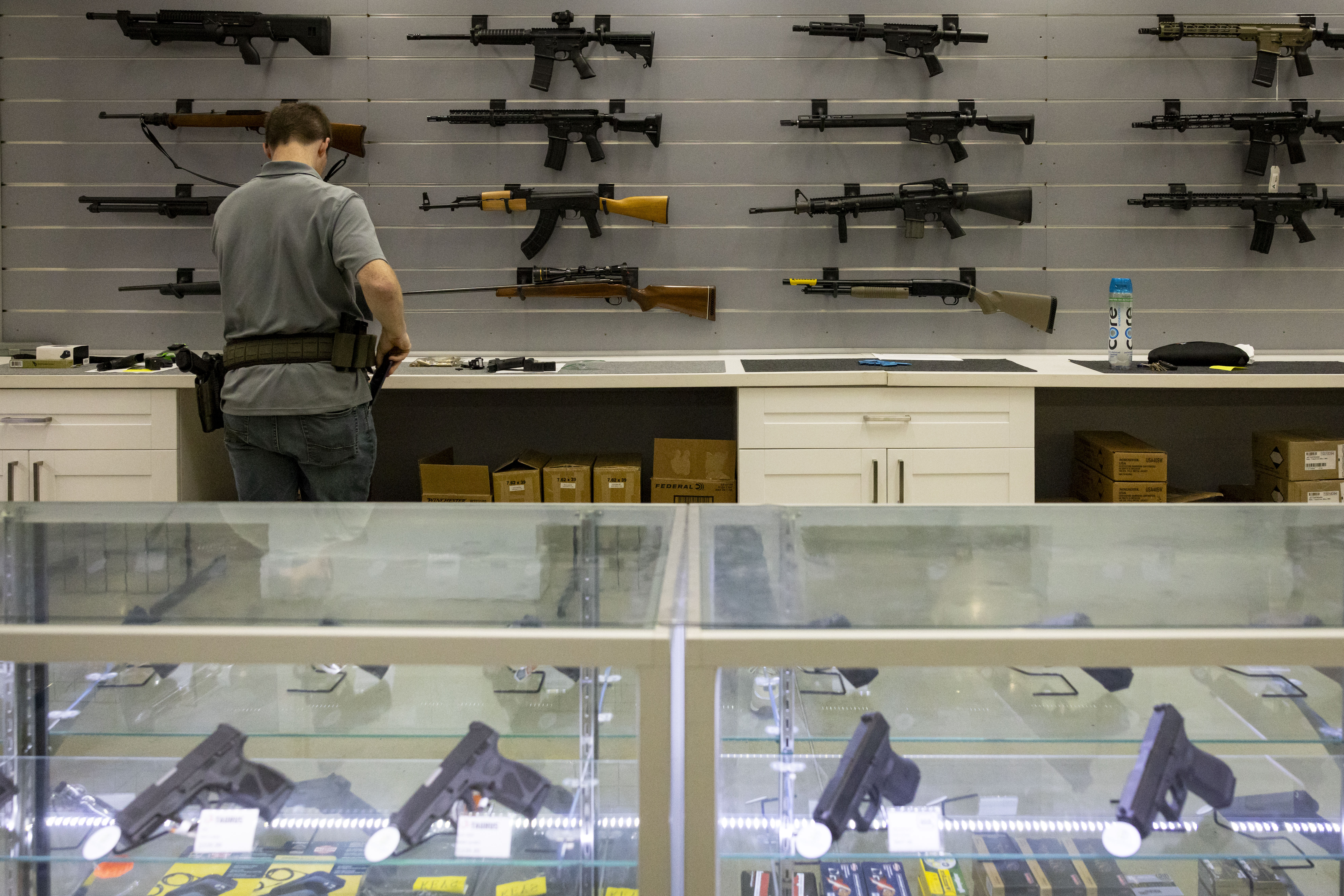Floridians can now officially openly carry firearms in the state, now that a 15-day wait period has expired on an appeals court decision that made a ban on open carry unconstitutional.
On Sept. 10, a panel of the 1st District Court of Appeal overturned a 1987 law that made it a misdemeanor to visibly display guns. (While people were barred for decades from openly carrying guns in Florida, they could get concealed-weapons licenses.)
The First District Court of Appeal, in its ruling, said Florida’s ban on open carry was incompatible with the nation’s “historical tradition of firearm regulation.”
Attorney General James Uthmeier quickly embraced the decision as “the law of the state” and issued guidance for prosecutors, police and sheriffs warning them not to arrest or put on trial “law-abiding citizens carrying a firearm in a manner that is visible to others.”
Florida Gov. Ron DeSantis said Thursday while speaking from Florida International University that he did not expect the state’s “daily culture” to change very much.
“We already have under statute, mind you, permitless concealed carry, constitutional carry,” he said. “So I don’t think it’s honestly going to make a meaningful difference in kind of the daily culture of Florida. That would be my guess simply because it hasn’t really done much different in these other states.”
Restrictions
Open carry does not mean that a gun owner can take their firearm wherever they go, and they are still aren’t legally allowed to “exhibit [firearms] in a rude, careless, angry or threatening manner.”
It is also still illegal to threaten someone with a gun, and convicted felons are not allowed to own them.
Where you can’t bring a gun
Some places where you can’t bring a gun include the following:
- Police, sheriff’s office and highway stations
- Detention facility, prison, or jails
- Courthouses
- Meetings of the governing body of a county, public school district, municipality, or special district
- Schools, colleges, or professional athletic event not related to firearms
- Places where the carrying of firearms is prohibited by federal law
Property owners also have the right to tell people to leave their premises if they have an unauthorized weapon.
If you decide not to leave, you could face a trespassing charge, which is a third-degree felony.

Law enforcement reaction
Some law enforcement agencies explained that there would be a learning curve when it comes to the community understanding what people are allowed to do and not do with a firearm.
Miami Beach Police said that they have two priorities: educate and inform the public. They will also work with their legal team and train officers so that they know what’s allowed and what’s not.
Miramar Police Chief Delrish Moss explained that his approach is also education.
“It’s still hard to determine whether we’re going to be more or less safe because of this,” he told NBC6. “I know certainly people aren’t initially going to feel safe because it’s a new thing. They’re going to see this and be very cautious.
Still, Moss says open carry can be practiced safely.
“I know that when there are more guns and guns fall in the hands of people who shouldn’t have them, that’s more problematic,” Moss said. “Good citizens having guns and dealing with them responsibly is never a problem.”
“So here’s what happens,” Polk County Sheriff Grady Judd told NBC affiliate WFLA. “If you go to a private business or to someone’s residence and you’re asked not to carry the firearm, you have to leave with it. If you stay there, then you’re committing armed trespass, which is a felony.”
In Pinellas County, the sheriff’s office issued a statement that detailed some rules around open carry that expanded on Judd’s point.
The statement reads in part: “Private property owners (grocery stores, retail stores, restaurants, etc.) have a right to prohibit people from the open or concealed carry of firearms on their property. Prior written notice is not required, and the businesses may verbally ask a person carrying a gun to leave.”
Statement From Pinellas County Law Enforcement Leaders On the Open Carry Of Guns: pic.twitter.com/8fDqXBYSD0
— Pinellas County Sheriff's Office (@SheriffPinellas) September 17, 2025
Understanding open carry
Open carry means that a person can display a firearm while they are out in public. The firearm is usually placed inside a holster.
In 2023, DeSantis signed a law that allowed gun owners to conceal their firearms without a permit.
The bill allows anyone who can legally own a gun in Florida to carry one without a permit. It means training and a background check will not be needed for people to carry concealed guns in public.
For Adolfo Dominguez, a gun expert at Top Gun Indoor Shooting Range, open carry for him is circumstantial.
“If I’m going to go to the grocery store, I am not going to do open carry,” he said. “If I am just driving around town, doing the stuff I have to do, I am not going to open carry.”
Dominguez said that there are times where he believes open carry is appropriate.
“If there is an emergency, there’s a hurricane or something, yeah, maybe I would do it, but it’s under some X-circumstances.”

Want more insights? Join Working Title - our career elevating newsletter and get the future of work delivered weekly.